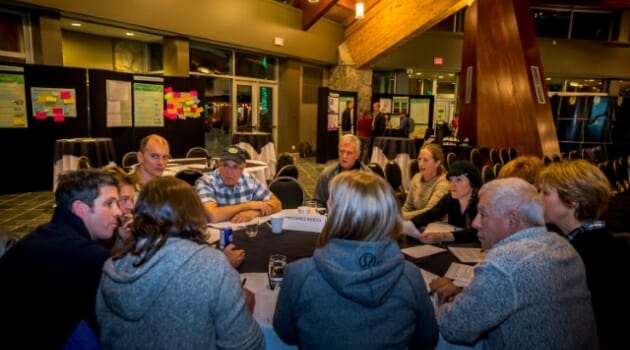
200 community members attended the Transportation Community Forum on January 17, 2017 and 512 people provided feedback through the online survey.
Whistler’s Transportation Advisory Group will use the input collected through the survey, as well as discussions at the forum, to develop future action plans.
Key research highlights
TAG’s research highlights that were presented in more detail at the Transportation Community Forum included:
- Traffic levels in Whistler were significantly higher in 2016 compared to historic levels. While trips coming in from outside of Whistler both north and south have grown, a large portion of daily traffic measured by the Highway 99 traffic counters was generated by trips within Whistler. This presents an opportunity to reduce congestion by shifting behaviour so people take fewer vehicle trips when in Whistler.
- Parking should be managed to ensure a better customer experience, with the goal of 10 to 15 per cent availability during a regular busy day.
- Transit ridership in Whistler is high compared to other communities in British Columbia however, there is still room to grow ridership. Additional hours will be added to the system in April 2017, as well as additional buses to the fleet in 2018. The 2016 free summer Saturday pilot project, which provided more free transit until 8 p.m., resulted in a 52 per cent increase in ridership, with many people citing the hassle of finding parking as a major reason for choosing to take transit on those six Saturdays.
- The RMOW has partnered with the Ministry of Transportation and Infrastructure to develop a traffic simulation computer model to help gauge how future scenarios will impact transportation on Highway 99 from Horseshoe Bay through to Pemberton. A detailed report will be provided to TAG in 2017.
